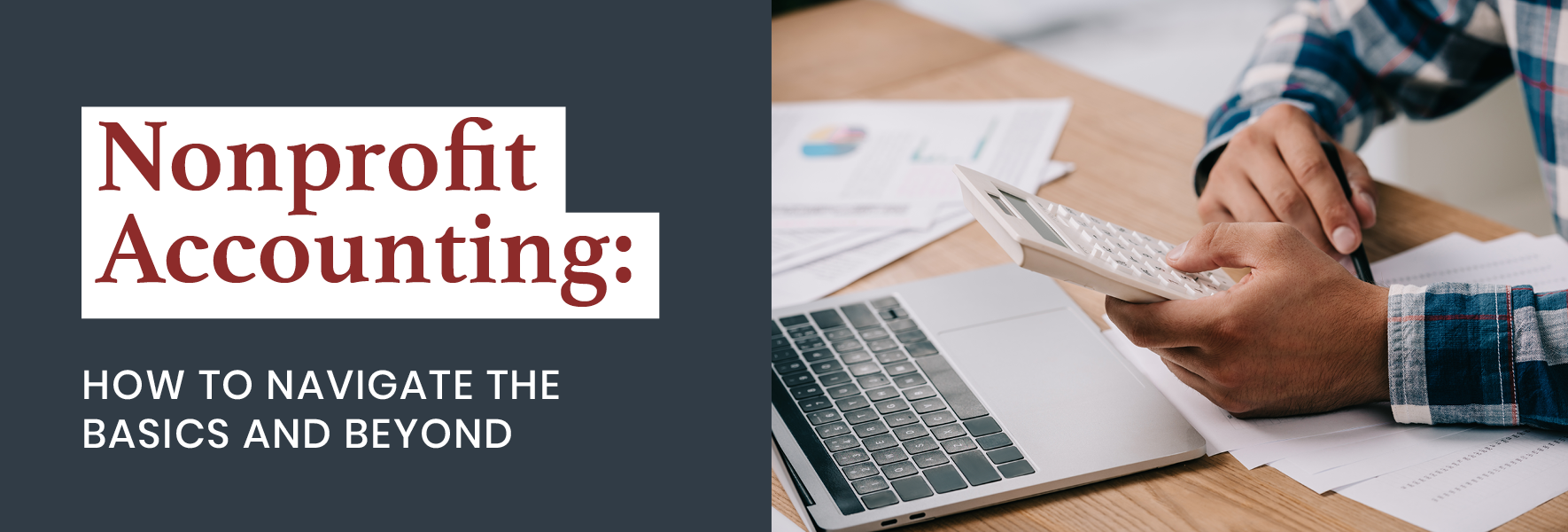Selecting the right audit firm is an important decision for your nonprofit. Many organizations may be required to undergo annual audits by their state’s Charitable Solicitation License requirements, their loan agreements, grant agreements, or other contractual obligations. Auditors not only provide an opinion on the material accuracy of your financial statements, but they also suggest ways…
Category: Outsourced Accounting
Building Financial Resilience: Key Strategies to Prepare for Uncertainty
Financial uncertainty is an ongoing reality for many nonprofit organizations, whether due to shifts in government funding, policy changes, economic downturns, or unexpected disruptions. While organizations may not always have control over these external factors, they can take proactive steps to strengthen their financial health and prepare for challenges. The most resilient nonprofits are those…
New Year, Clearer Vision: Using Data Visualization to Empower Your Nonprofit’s Financial Future
Why Data Visualization Matters As we step into a brand new year, it’s the perfect time to refresh your nonprofit’s approach to financial reporting—because (let’s face it) no one gets excited about a sea of spreadsheets. Financial reports can easily become overwhelming, or worse, feel disconnected from the big picture. But what if your data…
Nonprofit Financial Statements: Key Insights + Applications
Nonprofit financial statements are essential to optimizing financial health. Read this guide to deepen your understanding and explore strategic insights….
The Role of Accounting in Nonprofit Investment Strategy: What We Can and Can’t Do
Whether building endowments, funding specific projects, or growing reserves, investments can significantly impact a nonprofit’s financial health. However, managing these investments requires careful coordination between accountants, investment advisors, and investment committees. Sometimes it can be tricky to keep this all straight, so let’s explore the distinct roles of nonprofit accountants and investment advisors in investment…
Understanding Your Fiduciary Responsibility: Protecting Your Nonprofit and Its Mission
Being a fiduciary is one of the most critical roles a nonprofit leader can undertake. Unfortunately, it’s not always easy to understand. Whether you’re a board member, executive director, or another nonprofit decision maker, you may have found yourself unsure about what this role entails. You’re not alone; many nonprofit leaders feel the same way. …
Key Audit Challenges and Solutions for your Midsize to Large Nonprofit
Audits can be a daunting process for any organization, but medium-sized nonprofits face unique challenges. Ensuring financial integrity and transparency is crucial, not only for compliance but also for maintaining donor trust and securing future funding. At Chazin, our extensive experience with nonprofits of various sizes has allowed us to identify common pain points and…
Nonprofit Accounting: How to Navigate the Basics and Beyond
Nonprofit accounting is essential to your organization’s financial management and stability. Learn everything you need to know about it in this guide….
Streamlining Audits with PBC Checklists: What You Need to Know
If you are approaching an annual audit or if you’ve had an annual audit, you’ve likely encountered the term “PBC.” But what exactly does it entail? To truly grasp the significance of an audit, it’s essential to redefine its purpose. Many organizations perceive audits solely as a means to generate financial statements. It’s not uncommon…
Crafting an Effective Operating Reserve Policy: 5 Essential Guidelines
For nonprofits, it is essential to sustain a consistent cash flow to fulfill obligations. Establishing an operating reserve serves as a strategic measure, offering a safety net against unforeseen events that could temporarily impact cash flow. Here are five key practices to consider when developing your operating reserve policy, ensuring its effectiveness and availability when…










